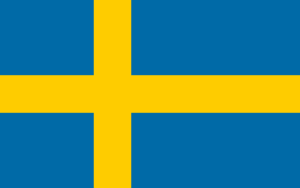AbroadBro Score: 8.5/10
The Good: Sweden is known for its high standard of living, excellent education system, and beautiful natural scenery. The country is also known for its progressive policies on gender equality, sustainability, and social welfare. International students will find a diverse and inclusive society, with many opportunities to get involved in student organizations and clubs.
The Bad: While Sweden is considered a safe country, the cost of living can be high, particularly in larger cities such as Stockholm. Additionally, the weather can be challenging during the winter months, with long periods of darkness and cold temperatures. Some international students may find it difficult to adapt to the Swedish way of life, which can be more reserved and formal compared to other countries.
The Ugly: Has to be the weather. Only some part of Sweden is populated whereas a large part is not.
Education Quality: The Swedish education system is known for its high-quality and innovative approach to teaching and learning. Universities in Sweden are recognized internationally for their research and academic excellence. The country offers a wide range of programs, from undergraduate to graduate level, and many universities have strong connections with industry and research institutions.
Tuition Fees: Unlike many other countries, most universities in Sweden do not charge tuition fees for international students, regardless of their nationality. However, there may be some additional fees for certain programs or services.
Educational Reputation: Sweden is known for its excellent education system, and its universities are recognized internationally for their research and academic excellence. Many universities in Sweden are ranked highly in global rankings and are considered among the best in the world.
Student Visa Regime: The student visa process in Sweden is generally considered straightforward and efficient. International students will need to provide documentation such as proof of admission, financial support, and health insurance.
Student Visa Extension: International students are generally able to extend their student visa if they need to stay in Sweden for longer than their initial visa allows.
Student Immigration at the Airport: The immigration process at the airport in Sweden is generally smooth and efficient. International students should have all required documents with them, including their student visa, passport, and proof of health insurance.
Attitude Towards Students: Swedish society is generally welcoming and inclusive towards international students. The country is known for its progressive policies on gender equality, sustainability, and social welfare, which create a diverse and inclusive environment for students.
Post-study Job Opportunities: International students are often able to find job opportunities in Sweden after graduation. The country has a strong economy and a high demand for skilled workers, particularly in areas such as technology, engineering, and healthcare.
Post-Study Citizenship for International Students: International students are not eligible for Swedish citizenship after graduation. However, they may be able to apply for a work permit or permanent residence permit if they find a job in Sweden.
Income/Expensive Ratio: The cost of living in Sweden can be high, particularly in larger cities such as Stockholm. However, the country’s high standard of living and excellent social welfare system can help balance this out.
Job Market: The Swedish job market is strong and diverse, with many opportunities for international students. The country has a high demand for skilled workers, particularly in areas such as technology, engineering, and healthcare.
Minimum Wages and average salary: The minimum wage in Sweden is around SEK 14,500 (approx. $1,600) per month. The average salary in Sweden is around SEK 33,000 (approx. $3,600) per month.
Local Language Difficulty: The official language of Sweden is Swedish, which can be difficult for international students to learn as it is not widely spoken outside of the country. However, many Swedes speak English fluently, making communication relatively easy for English-speaking students.
English Language Adaptation: Sweden is a country where English is widely spoken and understood, making it easy for international students to communicate with locals. Many Swedes learn English in school and use it as their second language. This will make it easy for international students to adapt to Sweden.
Racism: Sweden is generally considered a welcoming and inclusive country, and racism is not a major issue. However, as with any country, there may be isolated incidents of racism. International students should be aware of this possibility and report any incidents of racism they experience to the appropriate authorities.
Natives Profile: Swedes are known for their punctuality, reservedness, and a strong sense of community. They are also environmentally conscious and have a strong sense of civic responsibility. They are friendly, welcoming, and polite.
Culture: Sweden’s culture is heavily influenced by its history, particularly its Viking and medieval history. The country is also known for its love of the arts, music and design. There are many museums, galleries, and concert venues for students to explore.
Food: Swedish cuisine is heavily influenced by the country’s natural resources, particularly fish and seafood. Traditional dishes include meatballs, smoked salmon, and lingonberry jam. However, international students will also find a wide variety of international cuisines available in Sweden.
Weather: Sweden’s weather can be challenging for international students as it can be quite cold and dark during the winter months. However, the country is known for its spectacular natural beauty and offers many outdoor activities year-round.
Housing: Housing options for international students in Sweden vary depending on the location and institution. Some universities offer on-campus housing, while others may require students to find their own housing. Prices can be high, but there are also options for more affordable housing.
Health/Medical: Sweden has a well-developed and efficient healthcare system, and international students are generally able to access it. However, students may need to pay a small fee for some services. It is important for international students to have health insurance and to familiarize themselves with the healthcare system before arriving in Sweden.
Public Transportation: Sweden has an extensive and efficient public transportation system, including buses, trains, and trams. It can be a convenient and affordable way for international students to get around the country.
Police: Sweden is considered a safe country, and the police are generally friendly and approachable. International students should familiarize themselves with the emergency number (112) and know how to contact the police in case of an emergency

